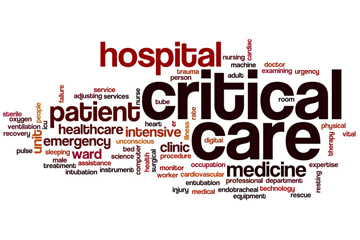 As a medical transcription company, we are well aware of the importance of accurate documentation of the care that physicians and nursing staff provide to patients. Error-free, timely electronic health record (EHR) integrated medical transcription services ensure the information necessary to develop a plan of care and/or make appropriate therapeutic decisions. A recent study highlights the advantages of EHRs in critical care.
As a medical transcription company, we are well aware of the importance of accurate documentation of the care that physicians and nursing staff provide to patients. Error-free, timely electronic health record (EHR) integrated medical transcription services ensure the information necessary to develop a plan of care and/or make appropriate therapeutic decisions. A recent study highlights the advantages of EHRs in critical care.
The study, published online by Nursing Critical Carein January 2017, reports that despite the financial incentives offered by the Health Information Technology for Economic and Clinical Health (HITECH) Act 2009 for the adoption of certified EHRs and meeting Meaningful Use requirements, healthcare providers and hospitals have been slow to implement anall-inclusive EHR.
Nursing in intensive care units (ICUs) is demanding and involves high emotional and physical risks in caring for patients who are seriously ill. With advancements in technology, ICU nurses have to work even faster than before to care for patients with highly complex conditions and needs. The researchers identify the reasons for slow adoption of EHRs in critical care as lack of computer skills, high cost, security concerns, workflow issues, and time. They point out that in the critical care environment, the benefits of EHR adoption outweigh the drawbacks:
- Ensure legibility in records : EHRs ensure legibility and resolve the problem of illegible handwriting which has been known to lead to medication errors. Some systems incorporate bar code scanning technology which issues alerts if the wrong medication is scanned. One study reported that EHRs reduce adverse drug events by 52%. Using an EHR to manage medications also improves patient outcomes over time.
- Enables quick reporting of critical lab values : The EHR makes notifications simpler for nursing staff by flagging each critical lab value. This allows timely reporting of this critical information to the healthcare provider.
- Reduces risks of duplicate tests : By helping clinicians determine when to repeat the lab test, the EHR improves treatment, clinical outcomes and overall efficiency, and minimizes duplicate testing.
- Allows easy access to radiology results : ICU physicians require instant access to radiologists’ reports to assess any pertinent changes in underlying pathological processes. They need to know findings that may modify management, those which are potentially life-threatening, as well as relevant temporal changes. Specially designed EHRs store radiology results and allow the healthcare providers treating the patient to access and view X-rays and other images at any time.
 Nurses typically use EHRs to review orders, diagnostic results, dictated notes and consults, and to document care, such as the administration of medications. Successful adoption of EHRs therefore depends on how well nursing staff and physicians learn to integrate with and use the technology. This is especially important in critical care where physicians and nurses need to handle high workloads, patient care is critical and complex, decisions need to be made quickly, and interventions must be implemented in a timely manner, stresses a study published in the Journal of the American Informatics Association (JAMIA). To succeed with EHRs, nurses must consider both computer literacy and information literacy as integral to nursing efficiency, rather than isolated skill sets.
Nurses typically use EHRs to review orders, diagnostic results, dictated notes and consults, and to document care, such as the administration of medications. Successful adoption of EHRs therefore depends on how well nursing staff and physicians learn to integrate with and use the technology. This is especially important in critical care where physicians and nurses need to handle high workloads, patient care is critical and complex, decisions need to be made quickly, and interventions must be implemented in a timely manner, stresses a study published in the Journal of the American Informatics Association (JAMIA). To succeed with EHRs, nurses must consider both computer literacy and information literacy as integral to nursing efficiency, rather than isolated skill sets.
Integrity in EHR documentation is critical to proper care and patient safety as well as for submitting accurate reimbursement claims. Several studies have shown how the provider’s ability to copy previous entries and paste them into a current entry can lead to duplicated or inapplicable information, as well as the inclusion of misleading or incorrect documentation.
Outsourcing medical transcription is a viable option to avoid such documentation errors in critical care and ensure integrity in EHR documentation. U.S. based medical transcription companies have expert teams that are well-versed in critical care terminology pertaining to various procedures as well as history and physical reports, diagnosis and treatment plans, emergency reports, surgical reports, examination reports, laboratory and radiology reports, and discharge summaries. Their timely documentation solutions are a great support to clinicians in critical care and go a long way in improving the quality and safety of care ICUs.


